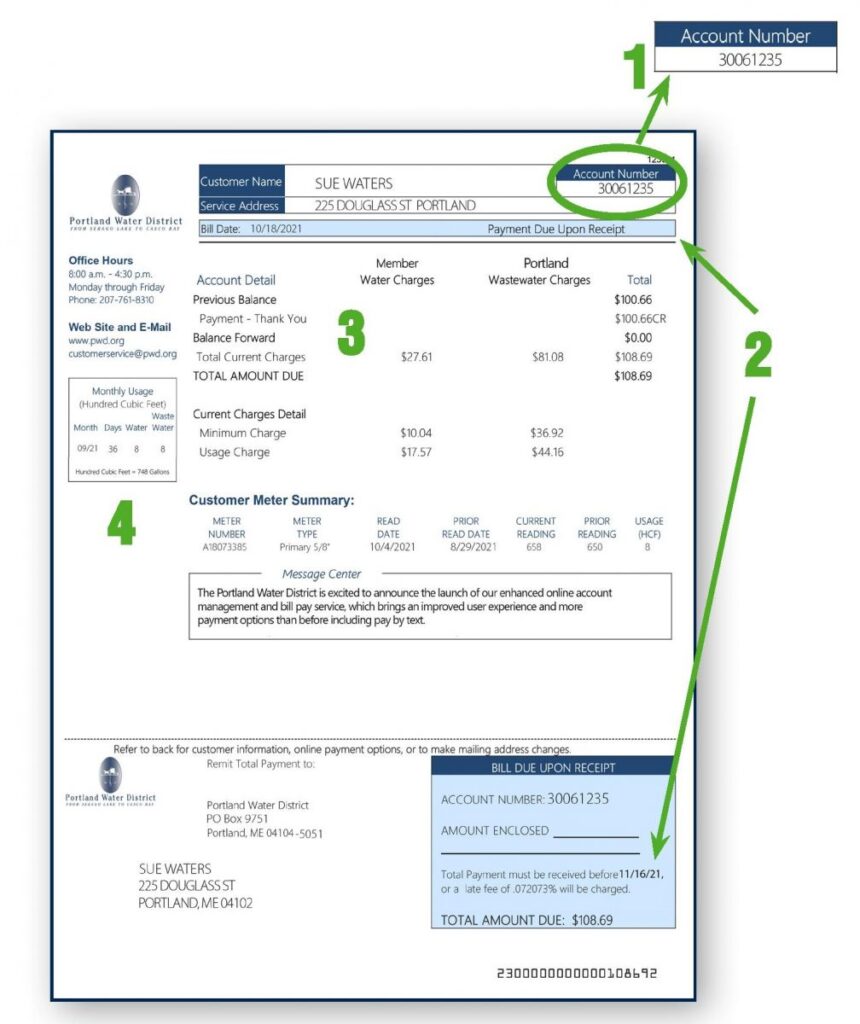How do I know my water bill?

Are you curious about how much water you are using and how it affects your monthly bill? Tracking your water usage is an essential step in understanding your consumption patterns and identifying ways to reduce costs. In this guide, we will explain the importance of tracking your water usage, how to read your water bill, methods to track your consumption, tips for reducing water consumption, common mistakes to avoid, and even share case studies of how tracking water usage helped save money.
Why is it Important to Track Your Water Usage?
Tracking your water usage is crucial for several reasons. Firstly, it allows you to understand how much water you are consuming and how it translates into your monthly bill. By monitoring your usage, you can identify any sudden spikes or irregularities in consumption that may indicate a leak or other issues. Additionally, tracking your water usage helps you become more conscious of your habits and encourages you to make changes to reduce unnecessary water consumption.
Understanding Your Water Bill
Before you can track your water usage effectively, it is essential to understand how to read your water bill. Your bill typically includes details such as the billing period, meter readings, current and previous balances, charges for water usage, and any additional fees or taxes. By familiarizing yourself with these components, you can gain insights into your consumption and monitor any changes over time.
Methods to Track Your Water Usage
There are various methods you can use to track your water usage. One simple approach is to manually read your water meter regularly. By recording the meter reading at the beginning and end of each day or week, you can calculate your daily or weekly usage. Alternatively, you can invest in a smart water meter that provides real-time data on your consumption, allowing for more accurate and convenient tracking. Additionally, some water utility companies offer online portals or mobile apps that enable customers to monitor their usage conveniently.
Tips for Reducing Water Consumption
If you are looking to reduce your water consumption and lower your bill, here are some helpful tips:
- Fix any leaks promptly
- Install water-efficient fixtures and appliances
- Be mindful of your outdoor water usage
- Take shorter showers
- Only run the dishwasher and washing machine with full loads
- Collect rainwater for watering plants
Common Mistakes to Avoid
When tracking your water usage, it is important to avoid common mistakes that can lead to inaccurate readings. Some mistakes to avoid include:
- Not checking for leaks regularly
- Ignoring small changes in water usage
- Not considering outdoor water consumption
Case Studies: How Tracking Water Usage Helped Save Money
Tracking water usage has proven to be beneficial for many households. In one case study, a family noticed a sudden increase in their water bill. By meticulously tracking their usage and investigating the issue, they discovered a hidden leak in their irrigation system, which was causing excessive water consumption. By repairing the leak, they were able to significantly reduce their water bill and save money in the long run.
Conclusion
Tracking your water usage is a valuable practice that can help you understand your consumption patterns, identify leaks or issues, and ultimately save money on your water bill. By being mindful of your water usage and implementing water-saving strategies, you can make a positive impact on both your wallet and the environment.
Frequently Asked Questions
1. How can I read my water meter?
Reading your water meter is simple. Locate your water meter, which is typically in the basement, utility room, or outside near the property line. Take note of the numbers displayed on the meter and record them. To calculate your usage, subtract the previous meter reading from the current one.
2. What factors can cause a high water bill?
Several factors can contribute to a high water bill, including leaks, inefficient fixtures and appliances, excessive outdoor water usage, and changes in household size or habits.
3. How can I estimate my water bill before it arrives?
You can estimate your water bill by monitoring your water usage throughout the billing period. Multiply your average daily usage by the number of days in the billing cycle and apply the water rates charged by your utility company to get an approximate bill amount.
4. What should I do if I suspect a water leak?
If you suspect a water leak, it is crucial to act promptly. Check for visible leaks, such as dripping faucets or running toilets. If you cannot identify the source of the leak, contact a professional plumber to inspect your plumbing system.

Leave a Reply